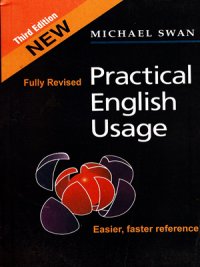Description
Politics Among Nations: The Struggle for Power and Peace Hans Morgenthau
Politics Among Nations: The Struggle for Power and Peace by Hans Morgenthau is a seminal work in the field of international relations, offering a deep and influential exploration of political realism. First published in 1948, this classic text continues to shape the way scholars, policymakers, and students understand the dynamics of global politics.
Morgenthau’s theory of realism is rooted in the idea that international relations are governed by immutable laws derived from human nature. Central to his argument is the concept of power, which he sees as the fundamental currency in global politics. Nations, Morgenthau posits, act primarily in pursuit of their own interests, often defined in terms of power, making the international system inherently anarchic and conflict-prone.
In addition, The book is structured around six principles of political realism, emphasizing the importance of pragmatism, the limitations of moral ideals in international politics, and the need for a balance of power to maintain global stability. Morgenthau critically examines diplomacy, international law, and the role of national interests, offering timeless insights into the mechanisms of peace and conflict.
Main Focus
- Core Principle of Political Realism: Morgenthau asserts that the pursuit of power drives international relations, roots it in human nature, and renders the global political system inherently competitive and conflict-prone.
- Six Principles of Realism: The book outlines foundational principles, including the prioritization of national interest, the objective nature of power, and the limits of morality in shaping foreign policy.
- Balance of Power: Morgenthau emphasizes the importance of maintaining a balance of power to prevent domination by any single nation, which he sees as essential for global stability.
- Critique of Idealism: The author rejects the notion that universal moral values govern international relations and advocates a pragmatic approach grounded in power dynamics.
- Application to Historical Events: Morgenthau supports his theories with analyses of significant global conflicts, such as World Wars and the early Cold War, illustrating how nations' pursuit of power shapes international outcomes.
Moreover, One of the book's strengths is its application of theory to real-world events, providing readers with historical examples that illuminate the principles of realism. Also, Morgenthau’s analyses of World War I, World War II, and the early stages of the Cold War demonstrate how power struggles and strategic interests shape the actions of nations.
Politics Among Nations: The Struggle for Power & Peace By Hans Morgenthau
In addition, As both a theoretical framework and a practical guide, Politics Among Nations challenges idealistic notions of international cooperation, arguing instead for a sober understanding of the realities of power. Also, Its insights into human nature, ethics, and strategy make it a must-read for anyone seeking to understand the complexities of global diplomacy.
lastly, this groundbreaking text remains a cornerstone of political science and international relations, inspiring critical debate and reflection on the enduring struggle for power and peace in the world stage.







Reviews
There are no reviews yet.